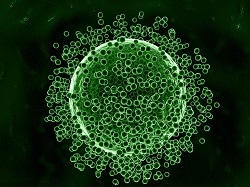Epigenetic alterations key for detecting and preventing breast cancer
The Epigenetics for Female Personalised Cancer Care (EPI-FEM-CARE) project has published research results that DNA changes are already present in the healthy tissue from women with breast cancer. The project - that aims to develop new methods for screening, diagnosing and personalising treatment of breast and ovarian cancer - undertook the research in order to decode how breast cancer, the most common cancer to afflict women, develops. Every year 330, 000 women in the EU are diagnosed with breast cancer and 90, 000 will die from the illness. Epigenetic changes and key risk factors Previous research has shown how there are key risk factors associated with an increased risk of cancer development. These include family history, early menstruation, or a late beginning to the menopause. These risk-mediating factors slightly alter the genetic programme inherent in breast cells at the time of exposure to the risk. These alterations are memorised by the cells over several decades, a process called the epigenome that controls the accessibility of the DNA sequence, and consequently influences the interpretation of the genome and the fate of the affected cell. EPI-FEM-CARE researchers analysed a total of 668 breast tissue samples, including both breast cancer samples and samples from women who did not have cancer. This was done through a unique statistical approach developed by the project. The most striking discovery from this analysis was that normal tissue adjacent to breast cancer is characterised by tens to thousands of epigenetic alterations. Importantly, a large component of the detected variable epigenetic signature was enriched in the corresponding breast cancer tissue, supporting the researchers’ hypothesis that this variable epigenetic signature marks susceptible precursor cells crucially involved in breast cancer development. Additionally, the results highlight that cases of breast cancer which were exhibiting epigenetic changes were associated with a significantly poorer prognosis and a decreased chance of survival from the disease. Developing new interventions and prevention strategies The project team argues that the application of these altered epigenetic signatures hold the key to designing new interventions and preventive strategies that could effectively ‘deactivate’ this epigenetic defect. Most importantly, the new data indicates how epigenetic alterations, if detected early enough, could be used to screen and identify women at a higher risk of developing breast cancer before the illness has the chance to fully develop. Overall, the results also highlight the importance of inter-disciplinary work and cooperation, with the project combining clinical, biological and statistical expertise in order to obtain its results. For more information please see: EPI-FEM-CARE project website
Countries
United Kingdom



